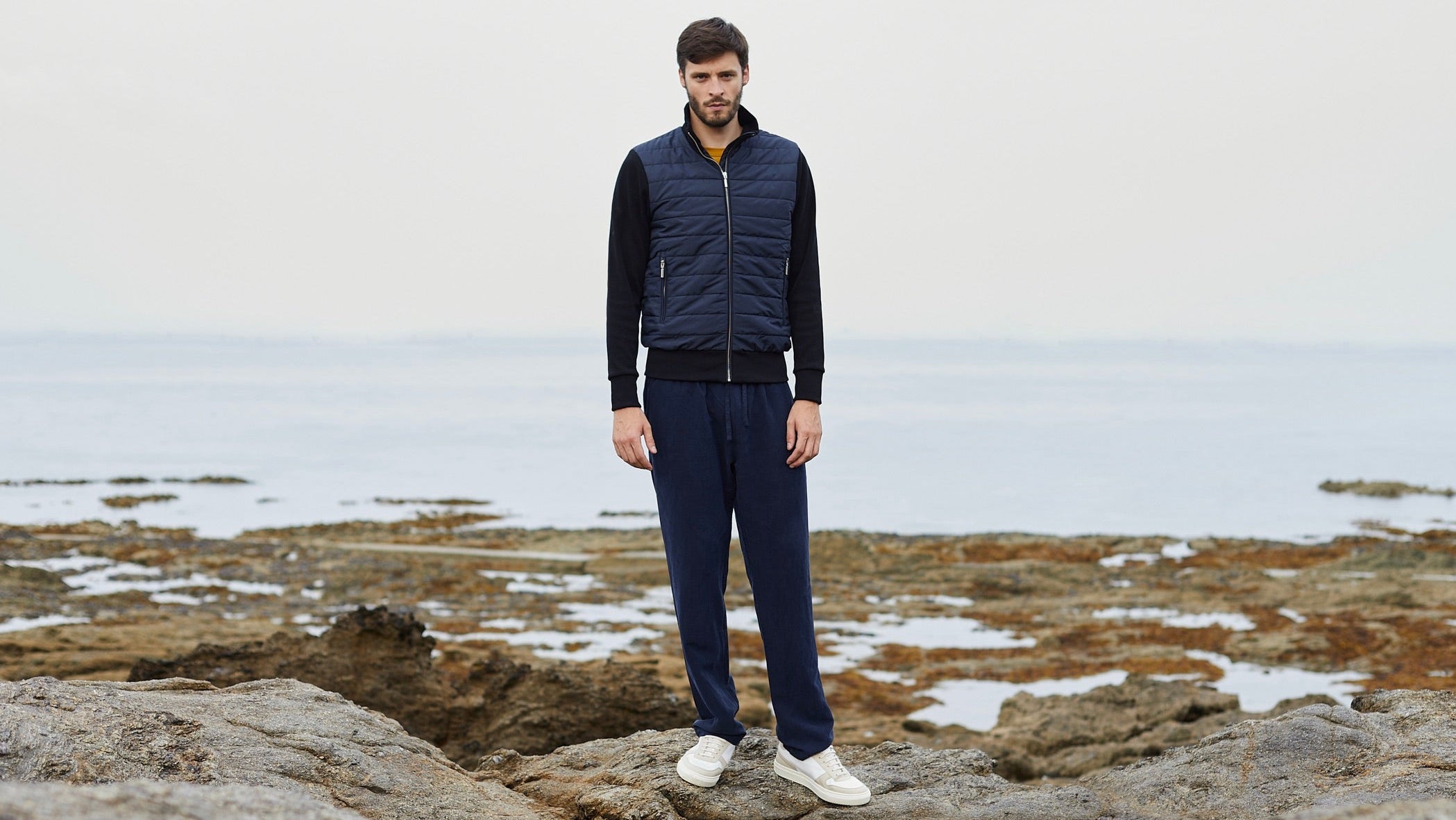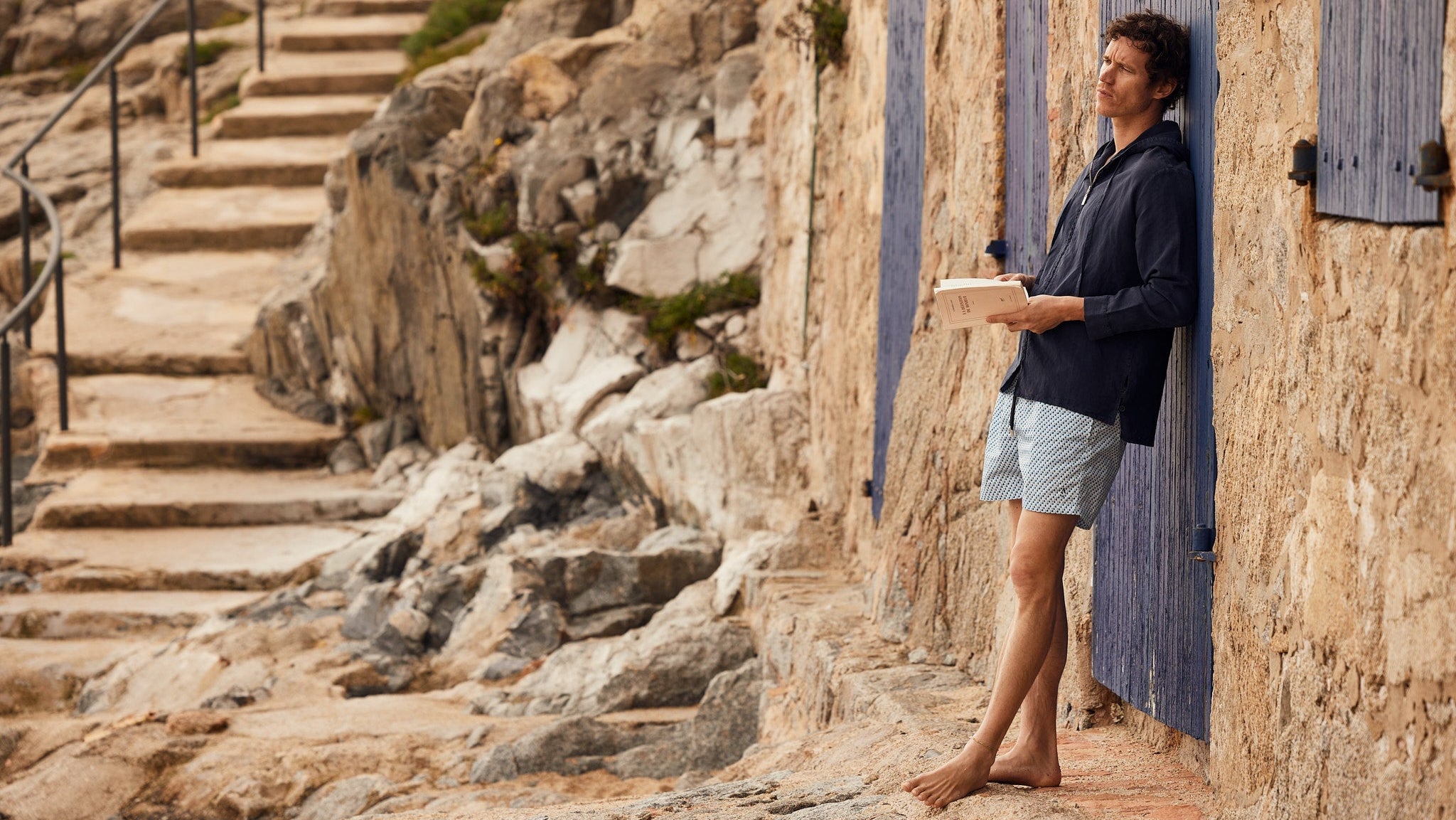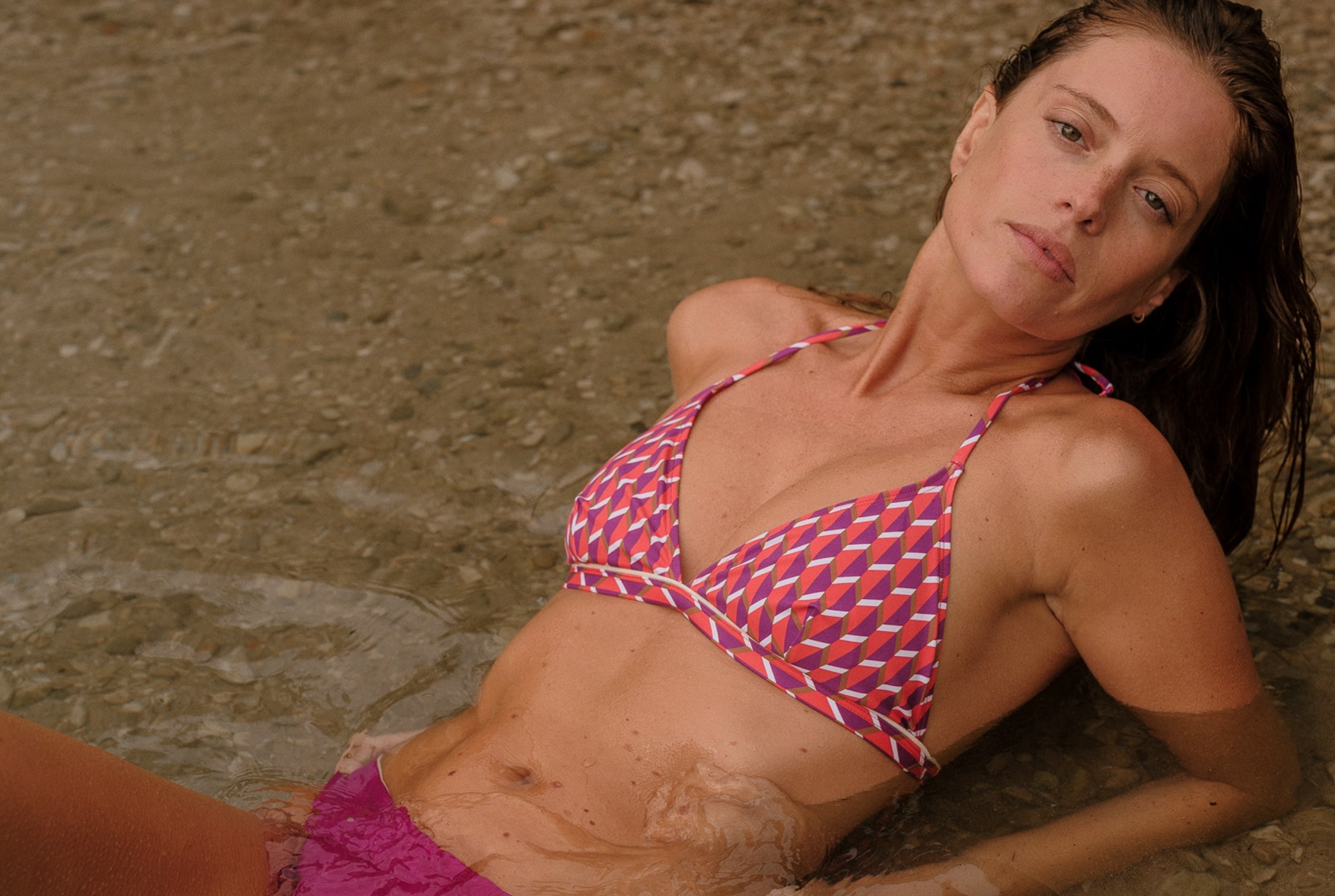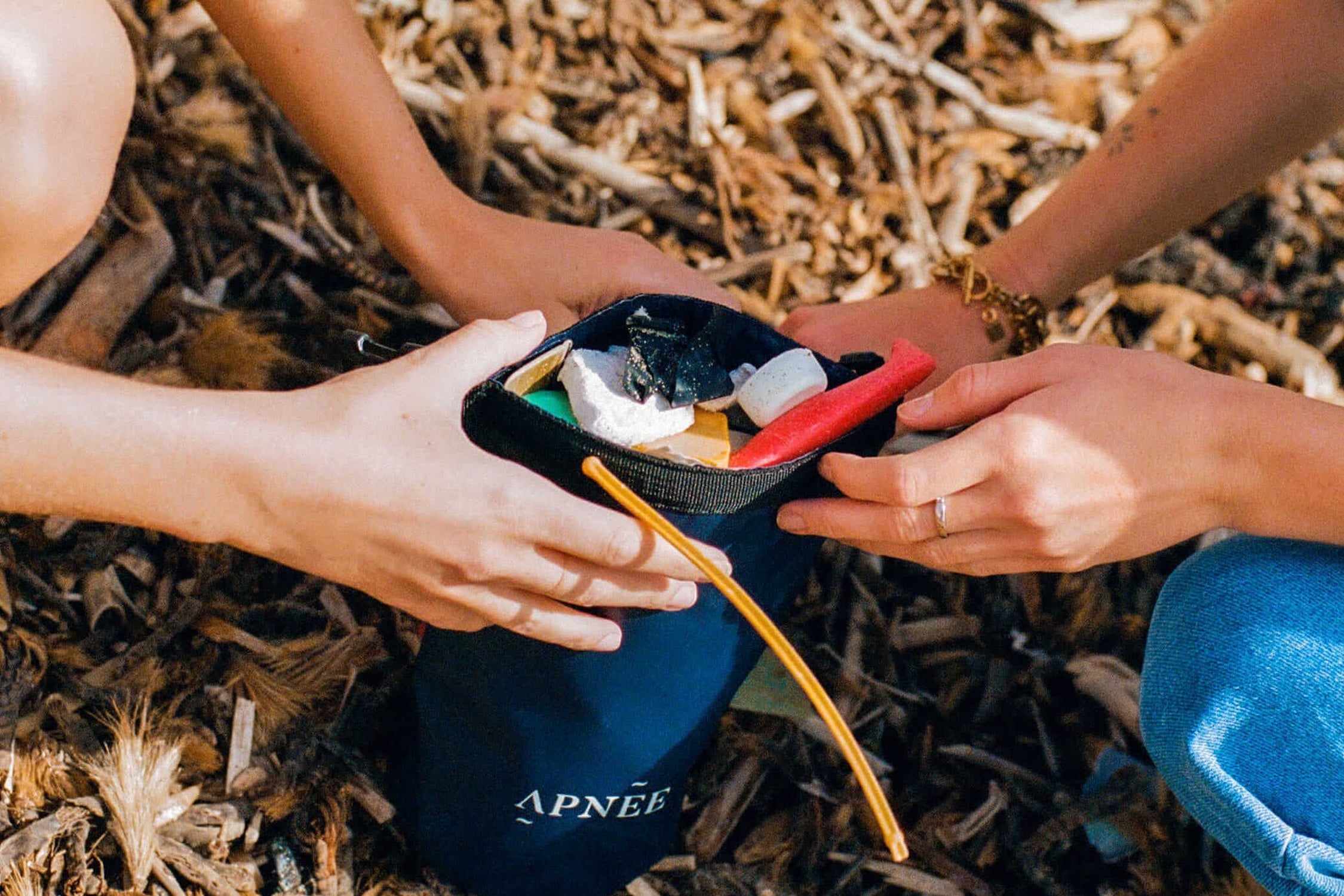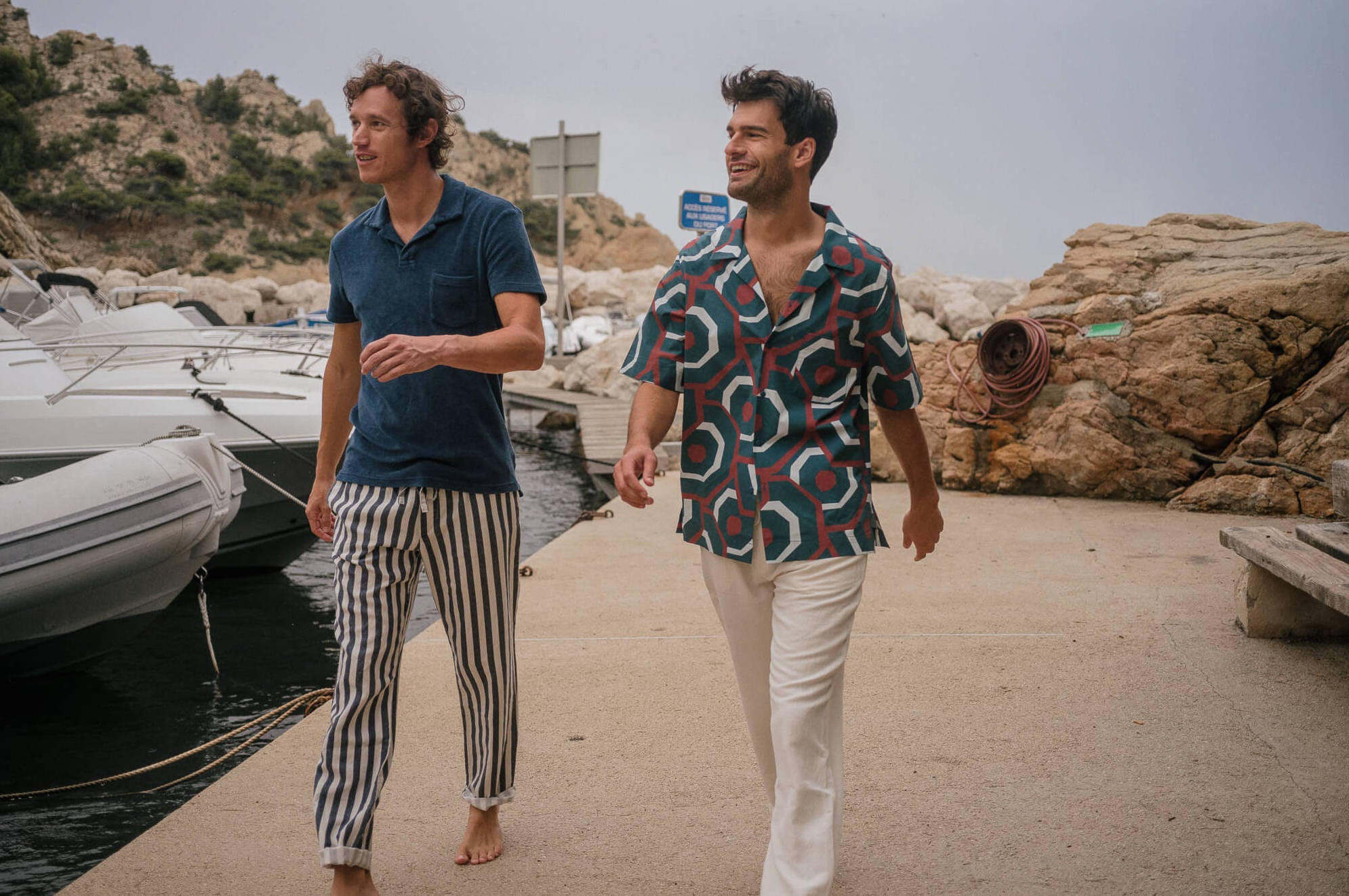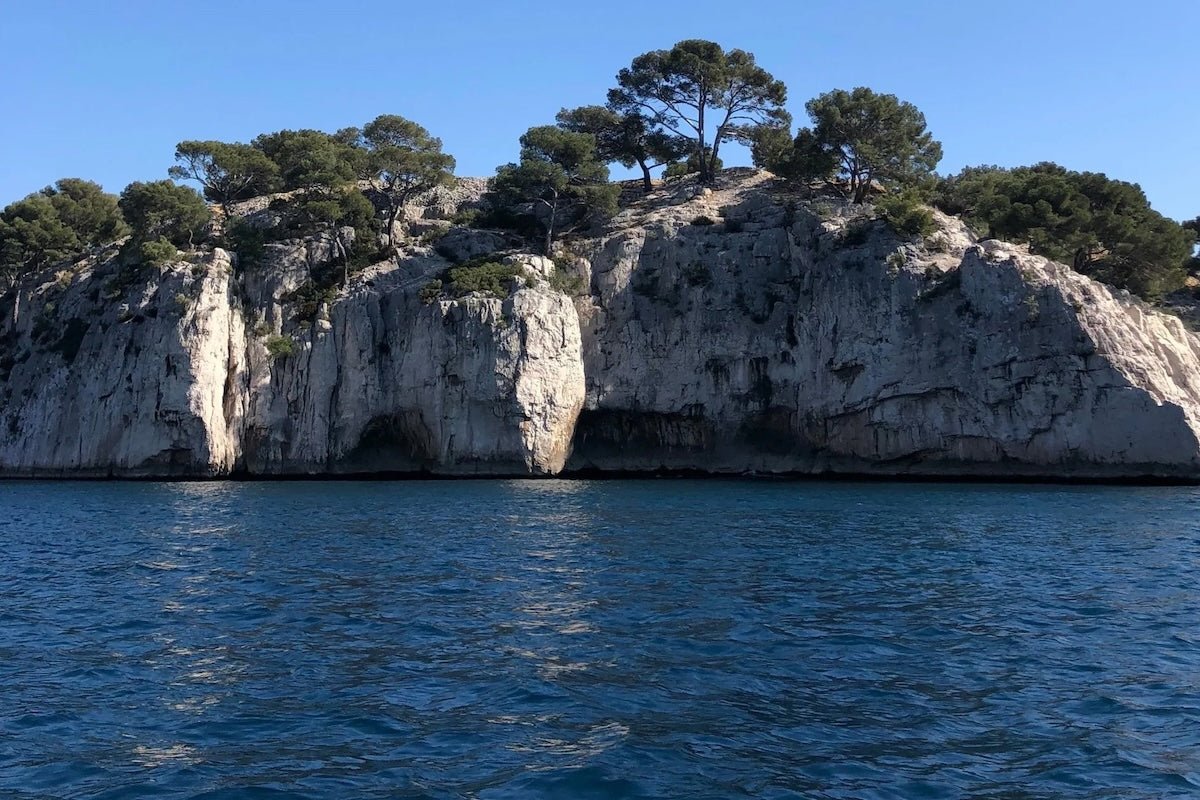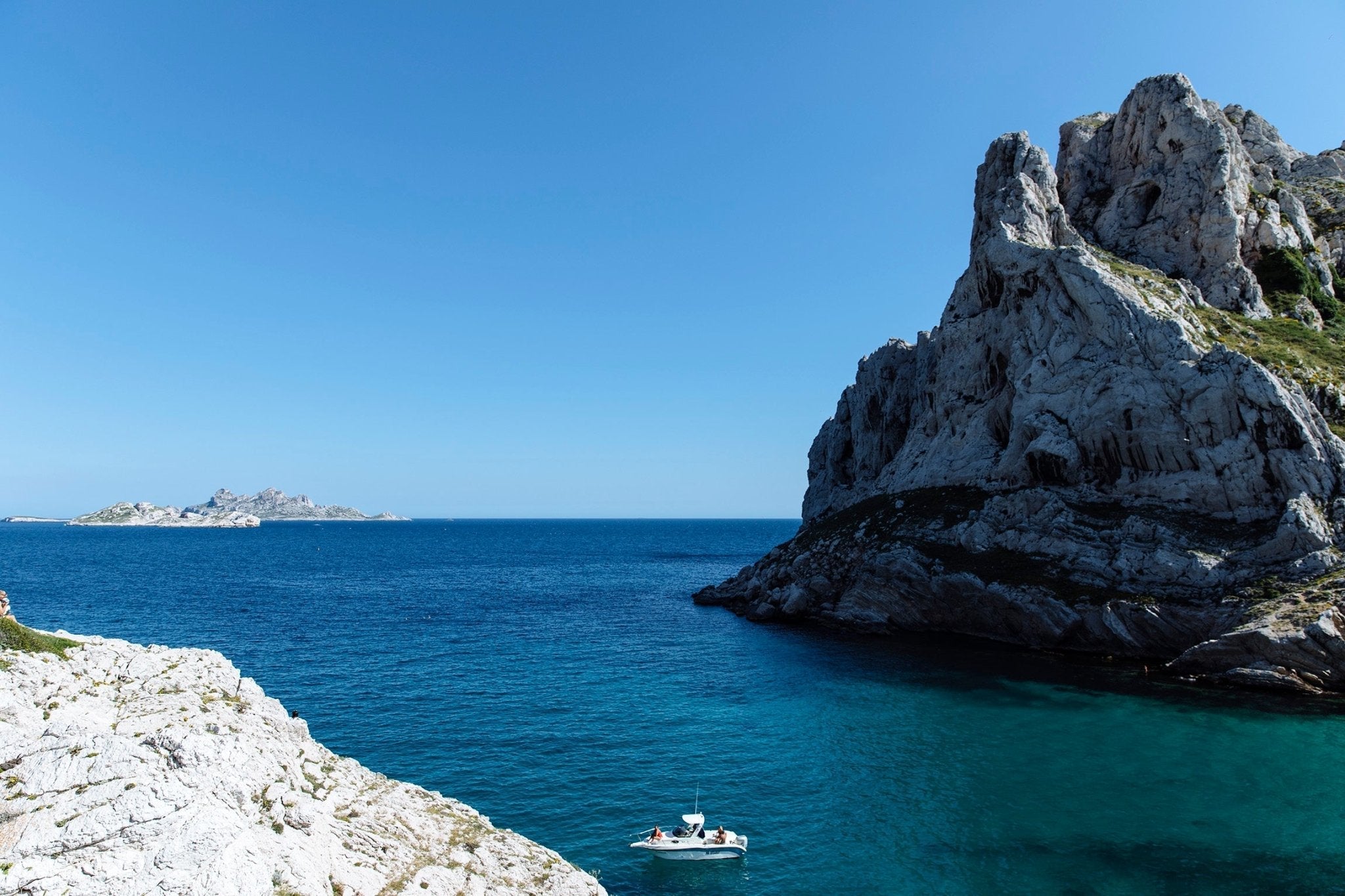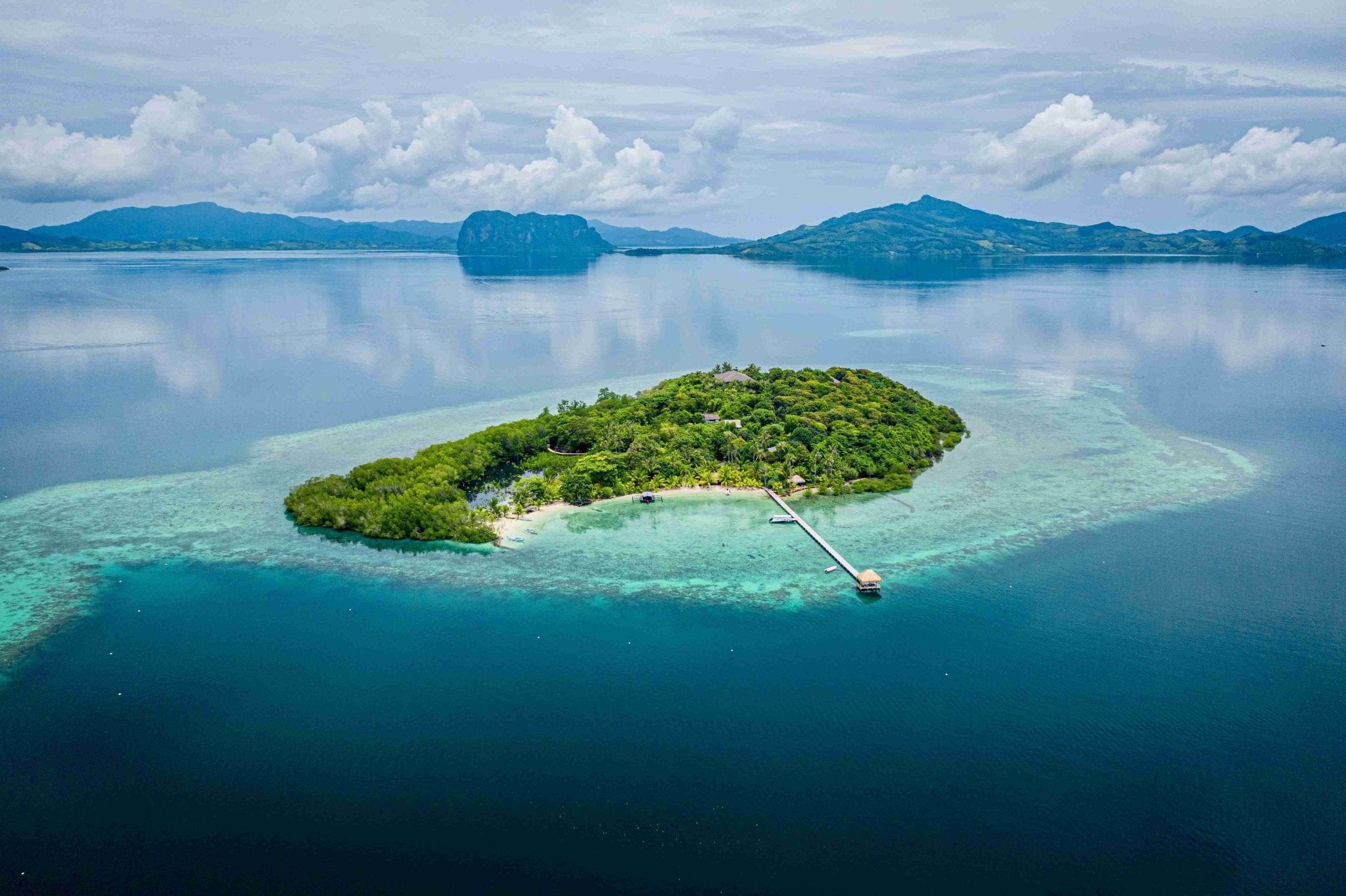
OCEAN LOVER #4: Frédéric Tardieu
Frédéric Tardieu, a Marseillais committed to the Philippines
Falling in love with the Philippines during a trip with his wife in the 1990s, Frédéric Tardieu, originally from Marseille, settled down in 2011 on the island of Pangatalan. This Frenchman, whom nothing predestined to invest in the environment, is committed to the restoration and protection of the ecosystems of this region.
Since his arrival in Pangatalan, he has created the Sulubaaï environmental foundation, revegetated the island, cleaned the seabed, trained local populations in the preservation of their environment and today participates in the restoration of coral reefs.
Now confined to his island, which has become a marine protected area, we had the chance and the pleasure of being able to discuss at length with Frédéric about his projects, his commitment and this incredible choice of life.
Do you have a memory with water to tell us?
I didn't have a childhood close to the sea but rather countryside and treehouse, but one day I was able to spend a day at the edge of the Etang de Berre, and it was a revelation! Poor swimmer but a mask on my face, I was taken with passion by this world of silence which was totally unknown to me...
What place does the ocean hold in your life?
Today the ocean is a passion, a fight. I practiced spearfishing for years in Marseille several times a week, summer and winter. The sea gave me real happiness and incredible sensations. The chance of life: here I am today, a “fierce” fighter for his protection.


Can you introduce us to your Sulubaaï foundation?
Sulubaai is a foundation in the Philippines, created with my wife in 2012, which aims to protect, restore and conserve the land and marine resources of the island of PALAWAN, and in particular coral restoration.
Sulubaai Environmental Foundation France was created in 2018 and has been recognized as a Public Interest Foundation by the government.
What is your coral grafting project?
In Asia, the practice of fishing with dynamite and cyanide has greatly destroyed coral sites. We decided to embark on this project in order to rebuild the habitats that disappeared because when everything is destroyed at the bottom of the water, nothing can live on it. This is how entire areas are desertified forever if we do not intervene.
Being novices in this field, we looked at what was being done elsewhere, but we weren't really convinced of the long-term result. So we created the SRP, SULU REEF PROSTHESIS, because the comparison came to me between a damaged dentition and a destroyed coral reef. A tooth in poor condition, it is pulled out, a pivot is implanted and a ''jacket'' is fixed. For the destroyed sites, it is the same technique: we remove all the dead corals, we fix the new SRP habitat and we dress it with coral cuttings (6 to 12, depending on the size of the SRP) fixed by simple pressure, without glue or plastic. The coral fuses onto its new support in just two months, as it is not subject to the stress of moving, exposure to the sun or multiple handling.
This earned us the title of “innovative method” by Unesco in 2018.
How did this project get started ?
An unexpected meeting with a young marine biologist in 2016, Thomas Pavy, he worked as an instructor in a diving club in El Nido, the tourist site of Palawan.
When did you have the click to have to act for the planet on your own scale?
Thomas came to Pangatalan, our island, because we wanted to take care of the marine part after having, for 5 years, replanted 60,000 trees and plants, as well as 10,000 mangroves because the island had been completely destroyed before our arrival. .
We had restored the basics so that nature could continue to do its job, it was only a small boost. Thomas then suggested that we create our own marine protected area.
From that moment it was obvious, the territory becoming immense, I had the feeling that I was entrusted with a part of the planet in management.



Did a meeting mark you in particular in this adventure?
Yes, a meeting was very important.
At the end of 2017, I went to the coastal conservatory in Aix en Provence, because I had heard of the ongoing creation of an international NGO called SMILO (Small Island Organization). I needed to join a group and no longer work alone in my area. So I meet Fabrice Bernard, the director, and tell him about our background and our work, but his response is scathing: “Bravo and congratulations! But you are too advanced and I do not see what we could bring you”. My arms are falling, but I don't let up and I answer him: "You can't imagine all that I can bring you..."
Since that day, our island has been part of SMILO, I sit on the board of directors, and Fabrice is a real friend.
Can you tell us about your life on the island of Pangatalan? What is your typical day like?
When you live on an island, you live with the sun.
5 o'clock in the morning, birdsong wakes me up, I hang out until 6 o'clock then we go around the island to take over from the guards who protect it.
7am breakfast with the family, with my wife Chris and very often Mazzeo our 6 year old grandson who lives in Palawan.
8 a.m. debriefing with marine biologists and our 25 Filipino employees for the missions decided on a day-to-day basis. Very often, I go swimming or diving with the project manager to check the state of the corals and the future restoration sites.
The morning ends with a canoe trip around the island with Mazzeo, then lunch and a little “Marseillaise siesta”.
The afternoon is dedicated to office work because France is waking up: projects, publications, scientific reports with CRIOBE, CNRS, POC and many others, preparation of international scientific missions such as Tara Expedition, Race for water , Gombessa, Energy Observer etc.
Dinner at 7 p.m. and bedtime around 8:30 p.m. - 9 p.m.

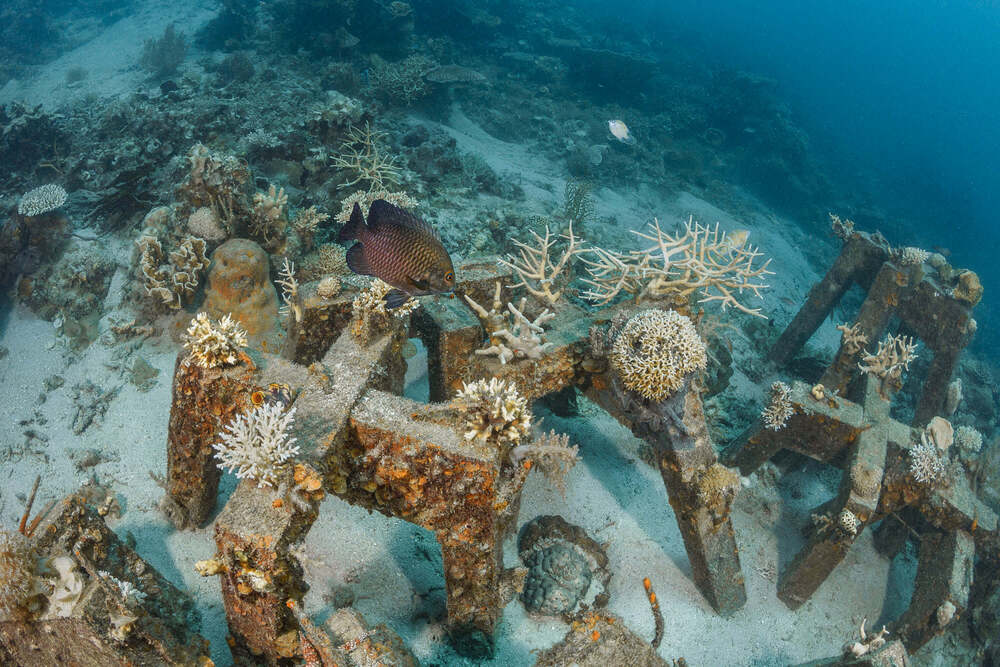
What are your plans for the future ? Do you have a dream for the planet?
My sweet dream would be to see the oceans again full of extinct and endangered species.
This is how the "L'Académie de la Mer" project was born, a set of marine protected areas, which should see the light of day in October 2020 thanks to the support of the Prince Albert 2nd, Veolia and Le Fond Français foundations for the Global Environment.
These are small marine areas of at least 50 ha, guarded day and night, in which habitats and corals are restored. Juvenile fish are released there, from post-larvae from the bay reared for 3 months, to boost diversity and restore the balance of the biomass.
We have been testing this project for 2 years. It's not just a dream, but a working reality! A sustainable project that is built with the children of the villages, as well as with adults through the creation of jobs, and university students in marine biology in the Philippines.
Do you have a little easy gesture for the planet to recommend to our readers?
Oh yes, there are so many simple gestures! But the gesture must always make those around you react to move people's consciences. For me, one of the most important concerns that of waste from plastic packaging. They must be boycotted at all costs because it is a global invasion, so if possible, leaving them there is not easy, but this gesture will one day make producers react to the extent of the problem.
Two more personal questions:
What are you proud of when you go to bed at night?
What I am most proud of in my inner heart is to prove that everyone at their level can be an actor of change if they want to.
And if you had to do it over again, what would you do differently?
If I had to do it again, I would fight against time and I would try to engage in this fight much earlier.


